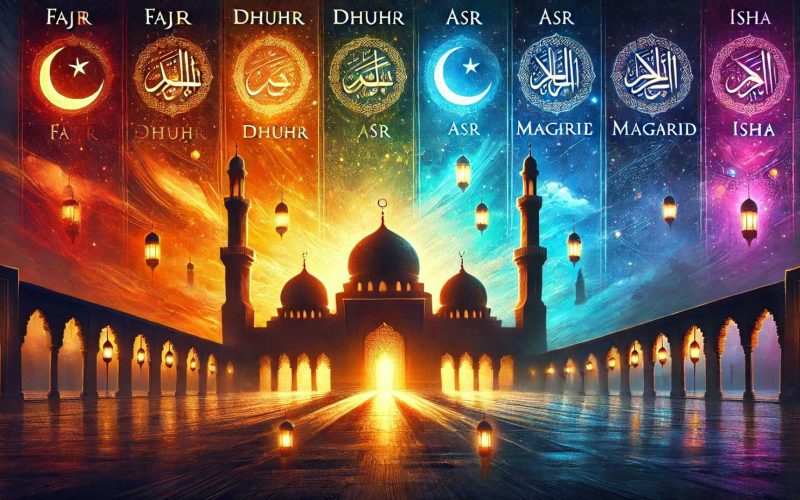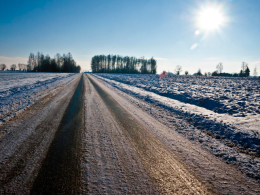Prayer is a cornerstone of faith for Muslims, deeply intertwined with daily life. In London, UK, adhering to the precise Salah timings is crucial for fulfilling these religious obligations. This guide offers an in-depth look at the praying time in London UK, underlining the importance of observing these times faithfully.
Additionally, it addresses common questions and provides essential insights into maintaining prayer discipline in the bustling urban life of London. Whether you are a resident or a visitor, understanding and keeping up with these timings is key to ensuring that one’s spiritual commitments are met consistently.
What Are the Accurate Praying Time in London UK?

For Muslims in London, observing Salah (daily prayers) at the correct time is essential. The prayer schedule follows the five daily Islamic prayers:
| Prayer | Time (Today) |
| Fajr (Dawn) | 05:42 AM |
| Dhuhr (Noon) | 12:15 PM |
| Asr (Afternoon) | 02:23 PM |
| Maghrib (Sunset) | 04:50 PM |
| Isha (Night) | 06:20 PM |
These times are based on Islamic calculations and may vary slightly depending on the mosque or local Islamic centre you follow.
Why is It Important to Follow the Correct Prayer Times in London?
Observing Salah at its correct time is a fundamental practice in Islam. It serves as a direct connection with Allah and is a daily reminder of faith. The Qur’an states:
“Verily, the prayer is enjoined on the believers at fixed hours.” (Quran 4:103)
Following accurate prayer times also helps maintain spiritual discipline and ensures that Muslims in London perform their prayers in accordance with Islamic teachings.
How Can I Find the Latest Praying Time in London UK?

To find the latest prayer times in London, UK, it’s important to use reliable and accurate resources. Here are several ways you can ensure you are praying at the correct time:
Islamic Websites
Websites such as Edarabia offer prayer timings for various cities worldwide, including London. These websites often provide detailed schedules, including Fajr, Dhuhr, Asr, Maghrib, and Isha prayers, based on the local calculation methods.
Mosque Websites
Local mosque websites like the East London Mosque also provide updated prayer timings specific to the region. These sites often include information about prayer times, events, and special announcements for the community.
Islamic Prayer Apps
There are several mobile apps designed to help Muslims find accurate prayer times based on their location. Apps such as Muslim Pro, Athan, and IslamicFinder are widely used. These apps can send you daily notifications about prayer times, ensuring you don’t miss any prayers.
Google Search
A quick and convenient option is simply searching on Google for “Today’s prayer time in London UK”. Google provides an instant overview of the prayer times for the day, based on the current location.
These sources are regularly updated to reflect any changes and to ensure that prayer times remain accurate. Using a combination of these methods will help you stay on track and follow the correct prayer schedule.
Where Can I Pray in London?

London is a vibrant, diverse city with a large Muslim population, and it offers several mosques and prayer facilities where Muslims can perform Salah. Whether you’re looking for a traditional mosque or a convenient prayer space, here are some notable places to pray in London:
East London Mosque
Located in Whitechapel, the East London Mosque is one of the largest and most prominent mosques in the UK. It caters to thousands of worshippers and provides a wide range of services, including daily prayers, Jummah, educational programs, and community outreach. With its spacious prayer halls and well-maintained facilities, it is a central hub for the Muslim community in East London.
Regent’s Park Mosque
Officially known as the London Central Mosque, this mosque is an iconic landmark in Central London. Situated next to Regent’s Park, it has a rich history and offers a serene environment for worshippers.
The mosque provides daily prayers, as well as special services during Ramadan, including Taraweeh and Eid prayers. It is also known for its Islamic cultural events and educational resources, making it a popular destination for both locals and tourists.
Finsbury Park Mosque
Also known as the North London Central Mosque, Finsbury Park Mosque is one of the most well-known mosques in the city. It has a significant role in the local Muslim community, offering daily prayers, educational programs, and charitable services.
The mosque is especially recognized for hosting community prayers and its contribution to interfaith dialogue and social integration.
West London Islamic Centre
Located in Acton, this mosque offers comprehensive prayer facilities, including separate areas for men and women.
It is a welcoming space for local Muslims and offers various services such as daily prayers, Jummah prayers, educational programs, and a social welfare system to support the community. The mosque also provides services during Ramadan and Eid celebrations.
London Central Mosque
Situated in the heart of London, this mosque is famous for its prominent dome and minaret. It offers a wide range of services, including Jummah prayers, Taraweeh prayers during Ramadan, and Eid prayers.
The mosque also provides a prayer space for visitors and workers in Central London, making it a great option for Muslims on the go. The mosque is also home to the Islamic Cultural Centre, which organizes various cultural, educational, and social events.
In addition to these well-known mosques, many other locations across London provide prayer facilities for Muslims. Several shopping centres, airports, and workplaces have dedicated prayer rooms to accommodate Muslims who need a place to pray during their daily routines. Notable locations include:
- Shopping Centres: Many shopping malls, such as Westfield London and Westfield Stratford, have designated prayer rooms equipped with appropriate facilities for prayer.
- Airports: London’s major airports, including Heathrow and Gatwick, provide prayer rooms for Muslim travellers. These rooms offer a quiet and clean space for worship and are open to all passengers.
- Workplaces: Many companies in London provide prayer facilities for their Muslim employees. These prayer rooms are typically quiet spaces designated for daily prayers and are designed to accommodate the needs of the workplace’s Muslim staff.
Overall, London offers a wide variety of mosques and prayer facilities to ensure that Muslims can perform their prayers conveniently and comfortably.
When Do Prayer Times Change in London Due to Daylight Savings?
In the UK, daylight savings time (DST) affects Salah timings. The clocks change:
- Last Sunday of March (clocks go forward 1 hour)
- Last Sunday of October (clocks go back 1 hour)
During DST, prayer times adjust accordingly, with Fajr and Isha becoming later in summer and earlier in winter.
Which Factors Affect Prayer Times in London?

Several factors influence the prayer times in London, and these factors are primarily related to astronomical and geographical aspects.
Understanding how these factors work together can help you ensure you are performing Salah at the correct time. Here are the key elements that affect prayer times in London:
1. Sunrise & Sunset
The times of sunrise and sunset play a crucial role in determining the prayer timings for Fajr, Maghrib, and Isha:
- Fajr: The time for Fajr prayer begins at dawn, which is when the first light appears in the sky before sunrise. It is important to accurately identify the time of dawn to ensure Fajr is performed within its correct window.
- Maghrib: Maghrib prayer is performed just after sunset. The exact time for Maghrib depends on when the sun dips below the horizon, which is why it can vary slightly depending on your specific location within London.
- Isha: The Isha prayer time starts when the sky becomes dark enough after sunset. This time can also be influenced by the length of twilight, which varies depending on the time of year.
2. Geographical Location
London’s geographical location, specifically its latitude and longitude, significantly influences the calculation of prayer times:
- Latitude: London’s latitude affects the duration of day and night, which in turn impacts the times for Fajr and Isha, particularly during the summer and winter months. During summer, the days are longer, and the time for Fajr may be earlier, while in winter, the days are shorter, and the time for Isha may come sooner. The variation in daylight hours makes precise prayer time calculations essential.
- Longitude: The city’s longitude affects the time zone and helps adjust the prayer times accordingly to local time.
3. Islamic Calculation Methods
There are various methods for calculating prayer times, and the differences between these methods can lead to slight variations in the times:
- Islamic Society of North America (ISNA) Method: This method is commonly followed by many mosques in the UK, including London. It uses an angle of 15° for Fajr and Isha, which determines when the sun is 15 degrees below the horizon during dawn and dusk.
- Umm al-Qura (Saudi Arabia) Method: Another widely used method, especially in Saudi Arabia, this calculation method uses an angle of 18° for Fajr and Isha. This method tends to have slightly later Fajr and earlier Isha timings compared to the ISNA method.
These differences in calculation methods are a result of varying interpretations of the sun’s position relative to the horizon, and these methods aim to provide the most accurate timings for each specific region. Most UK mosques follow either the ISNA or Umm al-Qura method, depending on the local preferences and the community’s needs.
4. Seasonal Changes
The times for Salah can also be affected by the changing seasons. As the Earth orbits the sun, the length of days and nights varies significantly between summer and winter:
- Summer: In summer, especially during the longer days around the summer solstice, the times for Fajr and Isha are much later than in winter. The long daylight hours mean that Fajr can be very early in the morning, and Isha can be late at night, with shorter gaps between the prayers.
- Winter: In winter, the days are shorter, so Fajr occurs later in the morning and Isha comes earlier in the evening. The shorter daylight hours also mean that there is more time between the prayers, making the prayer times more spaced out compared to summer.
5. Atmospheric Conditions
Local weather conditions can also slightly affect the visibility of the sun, especially during sunrise and sunset. For example, fog or clouds can obscure the horizon and make it difficult to pinpoint the exact time of Fajr or Maghrib, leading to the use of calculated timings based on astronomical data.
6. Altitude
While this has a smaller impact on prayer times, the altitude of a specific location in London may slightly affect the visibility of the horizon, which can influence the times for Fajr and Isha. However, for most areas in London, the effect of altitude is negligible.
What Are the Benefits of Praying on Time in Islam?

Praying Salah on time is not only an obligation but also offers spiritual and personal benefits, including:
- Strengthens the connection with Allah
- Promotes discipline and time management
- Increases peace of mind and reduces stress
- Encourages unity among Muslims
- Brings barakah (blessings) in daily life
Prophet Muhammad (PBUH) said:
“The best of deeds is the prayer at its proper time.” (Sahih Muslim)
How Can I Set Reminders for Praying Time in London?
To never miss a prayer, you can set Salah reminders using:
- Smartphone apps like Athan, Muslim Pro, and My Prayer
- Adhan alarms from local mosques
- Google Assistant/Alexa reminders
- Traditional Islamic clocks with Adhan notifications
What is the Friday (Jumu’ah) Prayer Time in London?

Jumu’ah (Friday prayer) holds special significance for Muslims. Most London mosques schedule Khutbah (sermon) around 12:30 PM – 1:30 PM, followed by Salah.
To find exact Jumu’ah times, check your local mosque’s website or Islamic centre announcements.
How do Ramadan and special Islamic months affect prayer times in London?
During Ramadan, prayer schedules are adjusted for:
- Suhoor (pre-dawn meal) before Fajr
- Iftar (breaking fast) at Maghrib
- Taraweeh prayers after Isha
Eid Salah times are also announced by mosques closer to Eid al-Fitr and Eid al-Adha.
Conclusion
Knowing the praying time in London UK is essential for Muslims to observe their daily Salah on time. Whether you use a prayer app, mosque timetable, or Islamic website, staying updated with accurate Salah times helps maintain a strong connection with Allah.
For the latest updates, check reliable prayer time sources and set reminders to never miss a prayer. May Allah accept our prayers and keep us steadfast in our faith.
FAQs
What is the best app for praying times in London?
Popular apps include Muslim Pro, Prayer Times, and IslamicFinder, which provide accurate and location-based Salah timings.
Do praying times change every day?
Yes, praying times change daily due to the shifting position of the sun. However, the changes are gradual.
How does daylight saving time affect praying times in London?
During daylight saving time, the clocks move forward by one hour, causing Fajr to be earlier and Isha to be later.
Are praying times the same across all of London?
Praying times may vary slightly depending on your exact location within London, but the differences are minimal.
Can I pray late if I miss the scheduled time?
While it is best to pray on time, if you miss a Salah, you should perform it as soon as possible.









